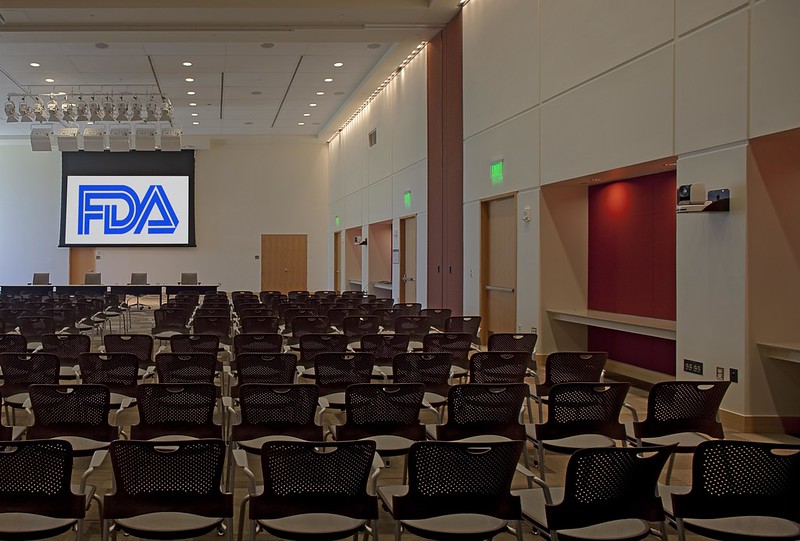
Today, FDA published notice in the Federal Register of an upcoming meeting of the Arthritis Drugs Advisory Committee that will be held May 6. The meeting will be held virtually.
Last year when the pandemic reality started setting in, like everyone else FDA had to change operations – in some cases shutting down or curtailing activities altogether and moving others to a virtual stage. The last in-person meeting of an advisory committee – by coincidence a meeting of the Vaccines and Related Biological Products Advisory Committee – occurred on March 4, 2020. A meeting of the Non-prescription Drugs Advisory Committee scheduled for one week later was “postponed” with subsequent meetings scheduled for April either postponed or cancelled entirely. A meeting scheduled for May 8 of the Cellular, Tissue and Gene Therapies Advisory Committee was slated to be a hybrid event – with members of the committee participating virtually and FDA staff appearing onsite at the agency campus, but was altered to become an all-virtual event via Adobe Connect.
You get the idea. Afterward there were more cancelled meetings, but by mid-June the agency was moving all meetings to a virtual platform as the realization that the pandemic was going to be long-term sank in. FDA expanded the types of platforms utilized in making the meetings available to view, including use of YouTube. I recently attended all three Vaccines and Related Biological Products Advisory Committee meetings on the COVID-19 vaccine candidates.
Those meetings included multiple exchanges like this:
“Hi. Good Afternoon. Can you hear me now?”
“We can hear you just fine. We are having trouble seeing your slides.”
“I see them. I don’t know why other people don’t see them.”
While the virtual meeting has become a regular fixture now, the exchanges such as the one above are nevertheless common and extremely repetitive and time consuming. In fact, if you added up the time spent addressing technical issues associated with the virtual meeting, you would probably find that several minutes had been eaten up, depriving the conversation of valuable time and thereby eroding the quality of the deliberation. Operating virtually is obviously better than not operating at all, whether we are talking about advisory committee meetings, our offices or even our personal relationships. But it becomes painfully obvious that it is not a substitute for the real thing.
In May the American College of Cardiology will be holding their annual meeting – ACC.21. Originally and perhaps optimistically it was envisioned as a hybrid meeting model – half in- person and half virtual, but has now transitioned to an all virtual meeting, leaving open the question as to who will have the first in-person meeting. As noted in the ACC statement on the switch to an all virtual venue, the decision was made not only based on the continued spread of the virus – and now in the form of a new strain which may be more readily transmissible, but by policies in place by institutions that are restricting travel during this time. You can’t hold an in-person meeting if no one is allowed to come.
So which will come first, the chicken or the egg? As we move from a non-vaccinated world to a partially vaccinated world to a mostly vaccinated world, where will the tipping point? Yesterday the New York Times noted that 26 percent of Americans have had at least one dose of vaccine and that if we continue at the same trajectory, by May 11 (just a few days after ACC.21) we will reach the half way mark of first vaccine dosing, with 9 in 10 being reached by the end of July. In the meantime, what policies will be in place to usher in a new era as we approach mass vaccination? Will there eventually be vaccine requirements imposed for entry to some venues, services or to take public forms of transportation?
We are fortunate in the respect that the pandemic has occurred at a time when we were able to pivot to virtual platforms. Can you imagine had it been otherwise – how much more damage would have been done. But it is time to start thinking about how we engineer the return journey.
There will be a tipping point and it will likely be sometime in the coming months, perhaps the autumn when enough people are vaccinated that it seems safe to go out in the world again.. And when it comes, hopefully we will be spared the pain – and the loss of benefit from in-person deliberation – and we will finally be able to throw the phrase “you are muted…” into our verbal trash bin. And hopefully someday later this year, we will have the first FDA Advisory Committee meeting that is held in person, or at least is a hybrid.
Can you hear me?

